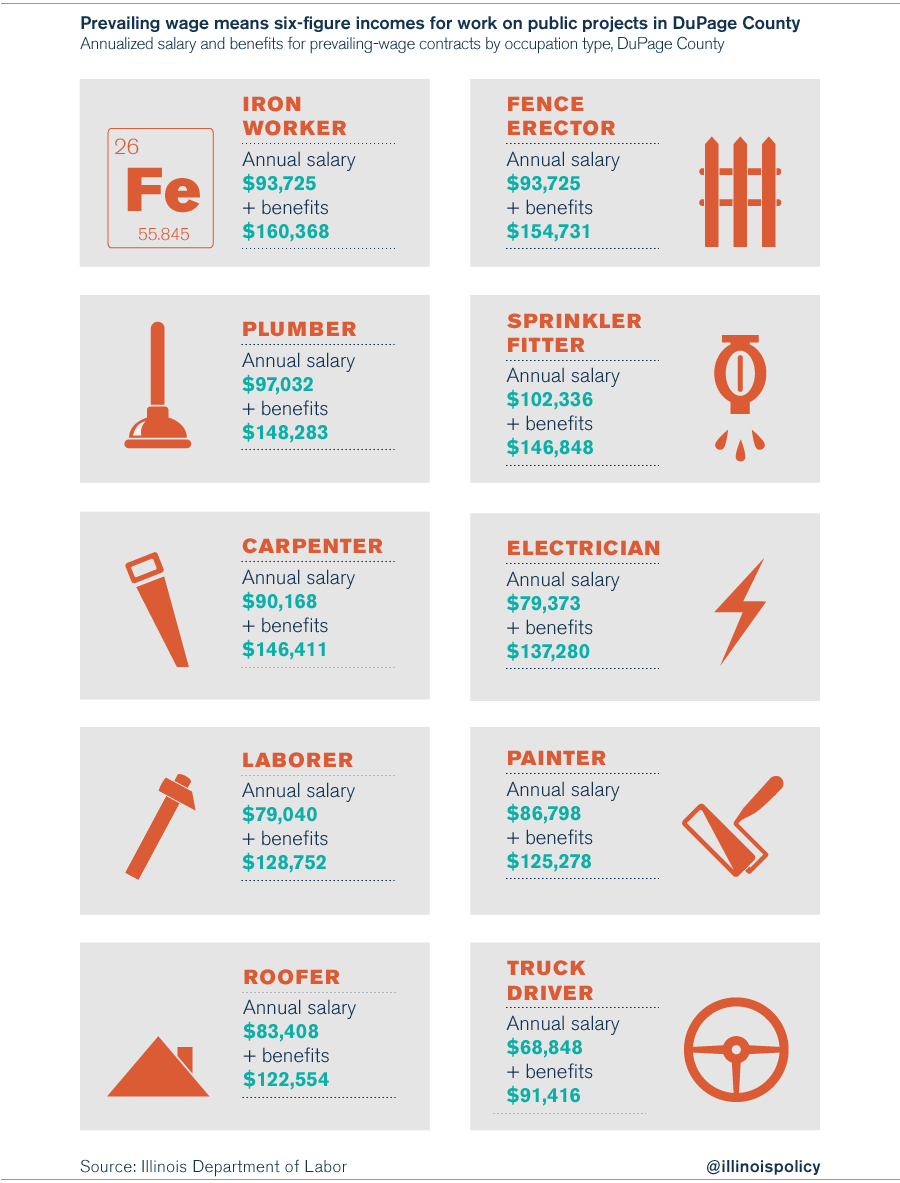Prevailing wage gives 6-figure salaries to workers on public projects in DuPage County
Illinois’ prevailing-wage law is crowding out funding for essential services in communities across the state.
The Oak Brook Village Board is voting on a resolution to call for the repeal of the Illinois Prevailing Wage Act on June 9.
Prevailing wages are hourly minimum wages placed on government contracts for public work. This means that if the government funds any part of a project, contractors are required to meet wages set by the Illinois Department of Labor. These workers are paid more than their private-sector counterparts, who are some of the very people footing the bill for these artificially high wages.
Take, for example, the following 10 professions, which are subject to prevailing-wage laws in DuPage County, where Oakbrook is located.
The median annual salary of these 10 professions under prevailing-wage contracts in DuPage County is over $88,000.
By comparison, the median annual salary of an Illinois manufacturing worker is just over $42,000, according to data from the U.S. Census Bureau.
These wages are astronomically high, and because they are mandated, stifle competition and discourage contractors from competitively bidding on projects.
This is unfair for multiple reasons.
First, it causes more burdensome taxes on the people of Oak Brook, other DuPage County communities and taxpayers across the state. Second, it denies local choice to community leaders to manage taxpayer dollars. And finally, it reduces funds to spend on other vitally important initiatives.
Further, there are very few accountability measures for these projects, so there is an incentive to go over budget, amplifying the negative impact.
The DuPage case is a small part of a broader issue with Illinois, which is the pay disparity between construction and manufacturing jobs. Illinois’ prevailing-wage law effectively transfers income from manufacturing workers to construction workers who work on public projects.
Illinois’ construction workers are the highest-paid construction workers in the country, while Illinois’ manufacturing workers are the lowest-paid in the Midwest. The average construction worker is paid nearly $25,000 more than the average manufacturing worker, in large part because the prevailing-wage law applies to construction but not manufacturing.
This is driving work over state lines, hurting Illinois’ economy and driving away jobs in an unprecedented fashion.
Local governments should be applauded in efforts to forge an economy that works for all residents, not just those who work in politically favored industries.
